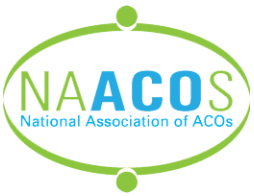
April 12, 2022 – The National Association of ACOs (NAACOS) announced it has launched a new task force, aimed at developing recommendations for how to successfully collect and electronically report on ACOs’ quality of care through disparate health information technology (IT) systems. The Centers for Medicare and Medicaid Services (CMS) has made it a goal to fully move to digital quality measurement by 2025.
That goal remains elusive for ACOs, who sometimes work with dozens of electronic health record (EHR) systems and must combine data from a myriad of doctors’ offices, hospitals, and other providers not using the same EHR. While CMS has delayed the transition to electronic clinical quality measures (eCQMs) until 2025, ACOs will need this time to develop solutions to the obstacles that currently exist to make a successful transition.
In addition to cost savings, ACOs are incentivized to demonstrate high quality of care on their assigned patients. ACOs are evaluated on a number of quality measures, such as patient experience, the delivery of flu vaccines, cancer screenings, and diabetes control. Participants in the MSSP, CMS’s largest and most successful value-based care program, received an average quality score of 97.8 percent in 2020, a new program best.
The NAACOS Digital Quality Measurement Task Force will convene ACO leaders and other experts to identify current capabilities and obstacles, helping generate potential solutions and recommendations that will be published in a policy paper later this year. It will then gather stakeholders, including CMS, the Office of the National Coordinator for Health IT (ONC), and health IT vendors, to discuss and react to the policy recommendations.
According to a NAACOS survey last year, more than three-quarters of ACOs have six or more EHRs, and 37 percent have 15 or more EHRs. Many rely on third-party companies to help them aggregate data, adding to the cost of their work.
